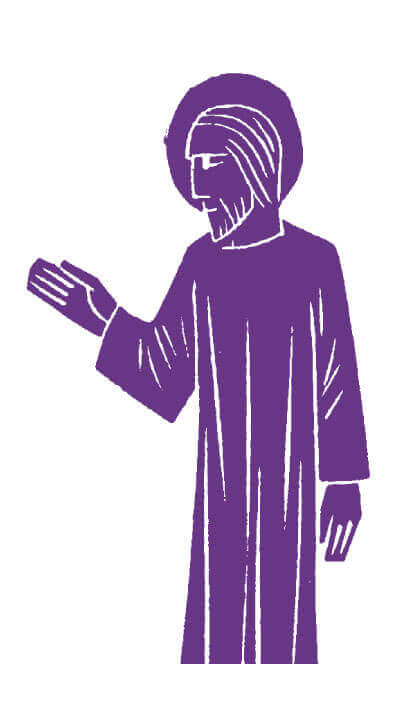
Sunday Readings: Isaiah 35.4-7; James 2.1-5; Mark 7.31-37
In the region of Decapolis people brought to Jesus a man who was deaf and who had an impediment in his speech. They begged him to lay his hand on him. Jesus took the man aside in private away from the crowd and put his fingers into his ears. He spat and touched his tongue. Then looking up to heaven, Jesus sighed and said, “Ephphatha.” This word means “Be opened.” Immediately the man’s ears were opened, his tongue was released, and he spoke plainly. Jesus ordered them to tell no one; but the more he ordered them, the more zealously they proclaimed it. – Mark 7.31-36
Lack of hearing separates the man who is deaf from his society. He experiences the world as silent. Worse, his deafness impedes his speech and silences his voice in the conversations of the human community. These challenges marginalize the man and leave the seeing of his eyes and the commitments of his heart without words.
Yet, this man communicates. He has friends. His friends beg Jesus to lay his hand on him. When Jesus says, “Be opened,” he opens the man’s ears to human conversation and gives him voice.
In fact, as events turn out, the miracle sets this man, who is a Gentile, free to participate fully in Jesus’ mission. When Jesus loosens his tongue and calls him into speech, he cannot be silenced nor can his friends. They will not keep Jesus’ healing power secret. They tell everyone the amazing healing the man has experienced.
This miracle story shows us in cameo that God wants wholeness and freedom for people. It shows Jesus reaches out to include the marginalized. It invites us to identify who is silent in our society.
When have others silenced you? Who have you listened into speech?